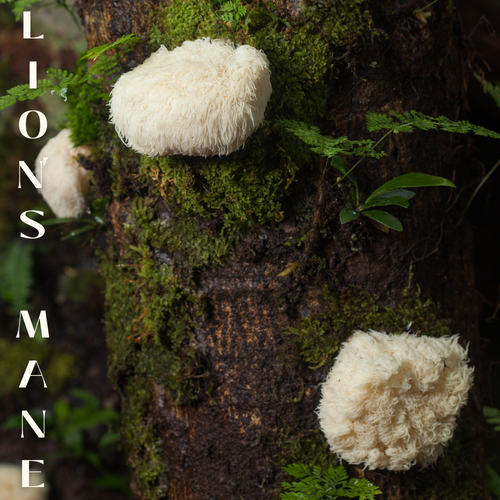A neurological condition known as epilepsy affects millions of individuals worldwide. Seizures, which can be mild to severe and have a substantial influence on a person's quality of life, are its defining feature. While conventional drugs are frequently used to treat the symptoms of epilepsy, a growing number of people are turning to natural treatments like mushroom supplements to lessen seizures and enhance general health. We'll talk about how taking supplements that contain mushrooms can help with epilepsy symptoms in this blog post.
Seizures are a symptom of the neurological condition epilepsy. These seizures can be mild or severe and are brought on by a number of things, such as heredity, brain damage, and infections. Although the main symptom of epilepsy is seizures, the condition can also result in other symptoms like loss of consciousness, confusion, and memory issues.
Conventional Epilepsy Therapy
Anticonvulsant drugs are used as the standard treatment for epilepsy. These drugs function by stifling aberrant brain electrical activity, which can lessen the frequency and intensity of seizures. Anticonvulsant drugs help many patients with epilepsy, but they can also cause adverse effects like nausea, sleepiness, and dizziness. Natural therapies like mushroom supplements are growing in popularity since some patients with epilepsy may not respond well to conventional drugs.
How Can Mushroom Supplements Help Reduce Symptoms of Epilepsy?
Mushroom supplements have been used for centuries in traditional medicine to treat a variety of health conditions, including epilepsy. Mushrooms contain a variety of compounds that have anti-inflammatory, antioxidant, and neuroprotective properties, which can help reduce the frequency and severity of seizures in people with epilepsy.
1. Anti-Inflammatory Properties
One of the primary ways that mushroom supplements can help reduce symptoms of epilepsy is through their anti-inflammatory properties. Chronic inflammation in the brain can lead to the development of seizures and other neurological disorders. Research has shown that mushrooms contain compounds that can reduce inflammation in the brain, which can help reduce the frequency and severity of seizures.
2. Antioxidant Properties
Antioxidants found in mushrooms can aid in protecting the brain from oxidative stress. When the body's capacity to neutralize free radicals and the generation of free radicals are out of balance, oxidative stress results. Cellular harm and inflammation may result from this, which may aid in the emergence of seizures. Supplements made from mushrooms can help lessen the severity and frequency of seizures by defending the brain against oxidative stress.
3. Neuroprotective Properties
Last but not least, mushroom supplements offer neuroprotective qualities that can aid in preventing brain injury. Over time, seizures can harm the brain, which may result in neurological issues down the road. Mushroom supplements can aid in lowering the risk of long-term issues related to epilepsy by preventing brain damage.
There are various options available if you're interested in taking mushroom supplements to help with epilepsy symptoms. The tincture, capsule, and powder forms of mushroom supplements are available and can be consumed orally or topically. It's crucial to get a high-quality supplement that contains pure mushroom extract without any additions or fillers while shopping for a mushroom supplement.
Also, it's crucial to see your doctor before beginning any new supplement regimen because some nutrients may interact with common epilepsy treatments.
Supplements made from mushrooms may have a number of health advantages, including easing epilepsy symptoms. Mushroom supplements can aid persons with epilepsy by lowering inflammation, defending the brain from oxidative stress, and offering neuroprotective characteristics, which can help decrease the frequency and severity of seizures.













